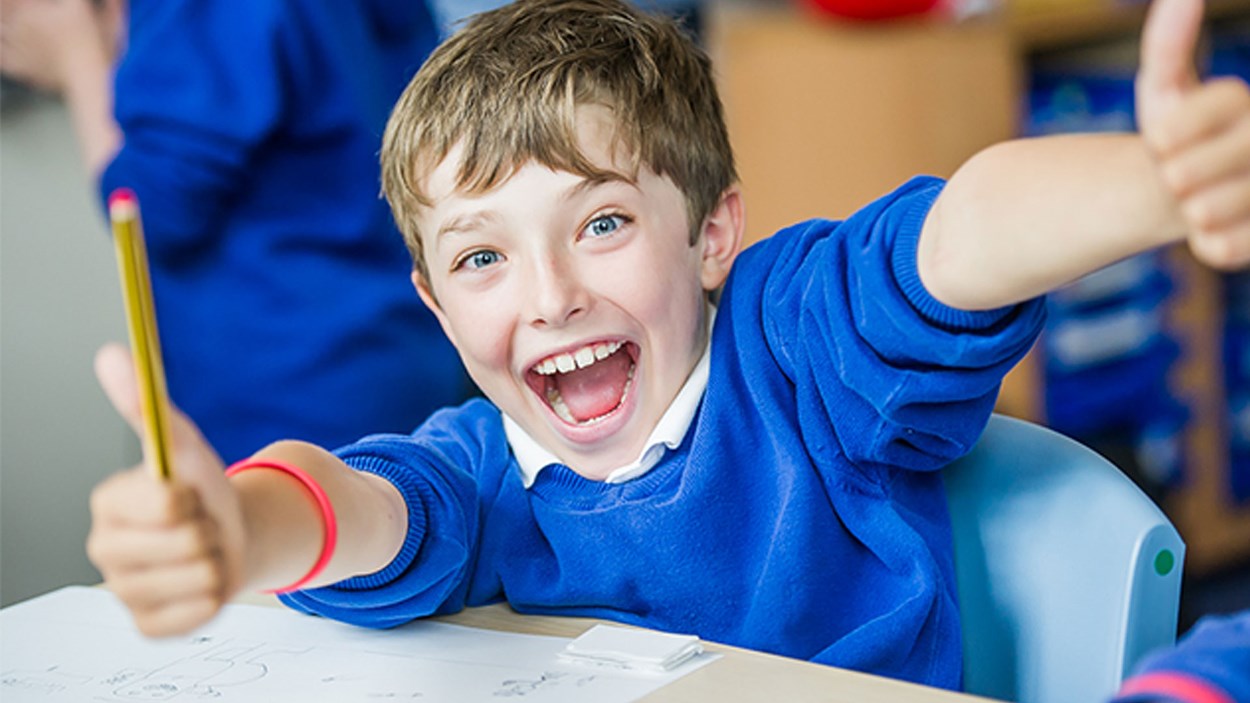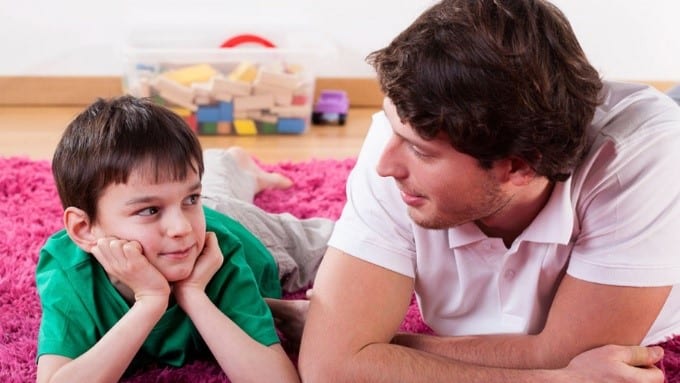
When your child is due to start school soon, it can be quite daunting for parents. Read on for some tips on what your child’s teacher would really like you to know.

Your child has probably been attending nursery or a childminder for a while, and is happy and settled there; they have made friends and have a regular routine with familiar adults caring for them. However, as the prospect of your child transitioning into education looms in the distance, many parents have a growing number of questions about what to expect. For example, does my child need to be able to read? Will they be able to eat a snack? Will they be with their friends? Your child’s new school should have open days and parents sessions where you can ask the new teacher any burning questions you might have, or questions specific to the individual school processes.
There are, of course, often those niggling questions that you feel too embarrassed to ask, or only remember once you get home. What happens if my child wets their pants? Will you wipe my child’s bottom? But the reverse can also be said: teachers also have things they would like to tell you but feel it is inappropriate or unprofessional to do so. This post aims to address some of these grey areas, the ‘I’d really like to tell them’s. Read on to find out more:

You will make our whole year if your child has an interest in books and reading. And I don’t mean reading in a formal sense here: I mean a curiosity about the pictures, what will follow on the next page, how to care for books, and just a general interest in gazing over a lovely book. This makes helping them learn to read much more engaging experience, and has so many learning benefits for your child, from increasing their vocabulary to seriously positive outcomes for your child’s academic abilities. (For more information on promoting a genuine love of reading in your child, see my other article).
We would prefer it if you have taught your child to be independent as possible. It makes our life so much easier when children can take care of their own basic toileting needs, can look after their own possessions, can do up their own trousers, and dress with minimal support (I know it is what we are paid for, but try to imagine how long it takes to help 30 children get changed after PE when they cant get their own socks or tops on). We do NOT expect your children to be an expert though, and appreciate all children need support sometimes – your children will be treated with just as much love and respect from us if they are struggling. (See my other post dedicated to promoting independence here – Raising independent and confident kids)

We love it when you share lots of conversations about anything and everything with your child. Children who have lots of opportunities to talk about a wide range of subjects with a wide range of people come to us with a much better range of vocabulary, and this makes it so much easier for us to support them to learn about new and varied topics. It means your child is unlikely to have trouble understanding the instructions to a task, or communicating with friends, and it can make dealing with peer conflict much easier when children can express why they are frustrated.

We think it is amazing when you encourage your child’s curiosity. Children are inquisitive by nature, and encouraging this natural curiosity does wonders for their attitude to learning; in fact, for me, it is one the most important factors in encouraging children to want to learn. Spend 10 minutes looking at that ladybird on a leaf, or investigating how that toy might work. Try not to just tell children the answers to their questions though (this is so tempting sometimes); instead, try asking ‘what do you think?’. This encourages them to use their own imagination, as well as giving you a window into the way their mind is processing information. I also find modelling ‘I wonder…’ questions helps to stimulate your child’s thought process, and is a great opportunity to share in the curiosity together. Top tip: take your child outside. For me, there is nothing better than the great outdoors to stimulate your child’s innate curiosity.

It’s really helpful when your child has opportunities to practice their motor skills at home. Any fun activity which helps to build up arm strength, wrist strength and finger strength is great for this. Children need to have whole arm strength and stamina to be able to hold a pencil and write effectively, and this is very physically demanding for young children. My favourite fun activities for children to do to promote their strength are: drawing, chalking or painting on a wall or fence (so they have to reach up high and stretch their arm); squirting water from a spray bottle with a trigger (like this one https://amzn.to/2XuIw3C), wheelbarrow races, Lego or Duplo (ideally without instructions to promote creativity too, like this https://amzn.to/2U5m4MB), squeezing playdough into various shapes and using a rolling pin to flatten it, and Hama beads (my all time favourite! Found here https://amzn.to/2zPJVcm. A pegboard may be easier for pre-school children depending on their developmental stage).
We don’t mind if you haven’t taught your child anything ‘formal’. By formal, I mean things such as how to read and write, or to write out number sentences (think 4+2=6). That’s our job! Of course, if your child knows some things already then that’s great, but if they don’t then that’s fine too. Their attitude to learning is the most important thing in the early days of school, and following the above points will ensure that your child is really eager and motivated to learn. If you do want to support their learning at home, the best things you can do to support your child’s development is to help them to recognise and practice their own name, as well as to talk about practical elements of maths such as halving a cake or counting each stair as you walk over it. In other words, we want you to ‘play’ with learning! Activities such as drawing and cutting are also great skills to practice. (For more tips on encouraging your child to genuinely enjoy learning, see this article).

We like it when you realise we’re only human. The school day is jam packed full of things that need to be done, and many different needs to be met and roles to be fulfilled: it is inevitable we are (very occasionally…) going to forget to remind little Johnny to put his welly boots on, or to check if little Suzie ate all her lunch. Please don’t be mad with us: there is nothing worse than dealing with an irate parent after a long and tiring day. Instead, try to encourage your child to take responsibility for their own needs (as in point 1), and consider whether there is anything we could have actually done to prevent the issue occurring (I have heard of parents complaining that their child rolled in fox poop and demanding they be reimbursed for a new coat, without actually considering the school rules say not to roll on the field). Teachers in general are a very helpful bunch of people, who genuinely have your child’s best interests at heart, so come and have a chat with us if you have any concerns.

Bonus tip: We love it when you label everything! As a parent, I get it – it’s so time consuming and frustratingly boring to label stuff. As a teacher though, what a difference it makes when your child’s things are labelled! When you are dealing with 30 children who all wear almost identical items of clothing (even down to the underwear sometimes!) it is such a time saver when you can quickly identify which item belongs to which child. I personally love these labels https://amzn.to/2MoTRfB which are customisable, so great for children who don’t yet recognise their names).

This list has been compiled from my informal chats with other teachers, and in no way is every teachers opinion – just some helpful tips from my own experience.
Do you have any particular concerns or worries about your child starting school? Does your child have any worries? Let me know in the comments box below, so I can offer you some support.
Love, Heather x
P.S. if you liked this article, be sure to check out my other articles dedicated to parenting and education – such as supporting your child’s transition to school, building your child’s resilience, and encouraging your child’s creativity.
*While your here, please consider liking my posts, as well as sharing them on your social media pages. You might also want to click on a few of the ads that appear: this will support my blog to grow, and hopefully allow me to help a wider range of parents. This blog contains affiliate links, but I only ever link to products I really believe in. Thank you so much x *








Great post! Really helpful as my daughter starts school in September, thank you.
LikeLiked by 1 person
Thank you. It’s so great to hear that it’s helping people. Let me know if I can offer any further support!
LikeLike